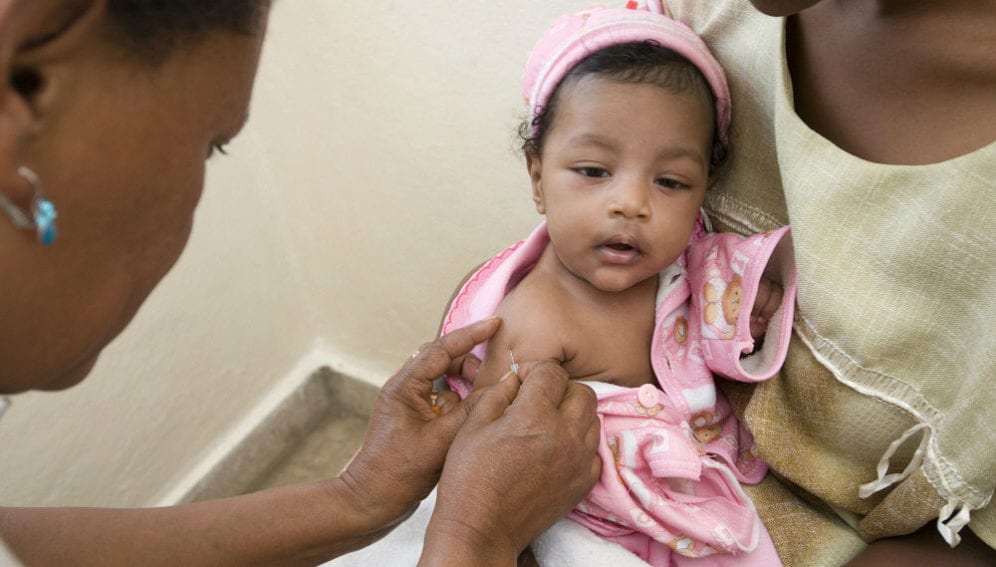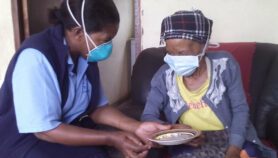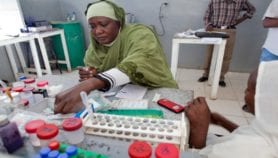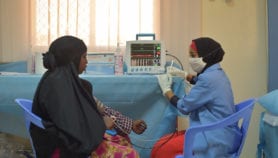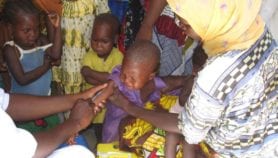Send to a friend
The details you provide on this page will not be used to send unsolicited email, and will not be sold to a 3rd party. See privacy policy.
[KISUMU, KENYA] A study shows that a TB vaccine could provide about 50 per cent protection against the disease 10 to 20 years after being given to children of school-going age.
According to UK-based researchers who conducted the study, the finding offers new insight in controlling TB in low resource settings.
The study that was conducted among adults in the general population in England 10 to 30 years after they were offered the BCG (Bacillus Calmette-Guérin) vaccine at school was published in the International Journal of Epidemiology on 31 August.
“Good services that successfully test and offer BCG to close contacts that are not infected and have not yet had BCG will help.”
Punam Mangtani, London School of Hygiene and Tropical Medicine
The researchers compared 677 people who were diagnosed with TB between 2003 and 2012 with 1,170 people without a previous history of the disease.
The researchers then inspected adults in both groups for BCG, vaccination scars and asked about their vaccination history. They found out that, overall the TB patients were more likely to have not received BCG vaccination while they were of school-going age.
“School-aged BCG vaccination offered moderate protection against tuberculosis for at least 20 years, which is longer than previously thought,” the researchers say. “This has implications for assessing the cost-effectiveness of BCG vaccination and when evaluating new TB vaccines.”
Punam Mangtani, co-author of the study and an associate professor of epidemiology at the London School of Hygiene and Tropical Medicine, tells SciDev.Net that despite several trials and the existence of about 13 new TB vaccines in development, it is challenging to find new TB vaccines, thus making additional protection offered by the only licensed TB vaccine promising.
According to Mangtani, the study offers insight into usefulness of BCG vaccination especially in low resource settings: “Good services that successfully test and offer BCG to close contacts that are not infected and have not yet had BCG will help reduce the risk of transmission to people.”
But she explains that if costs of TB treatment are not fully covered by health services, then it translates to a double burden economically, especially for the vulnerable poor.
TB risk is high but vaccination coverage is low such as in parts of Central and Western Africa, East Asia and the Pacific, says a statement from the London School of Hygiene and Tropical Medicine.
According to the WHO, there were about ten million new cases of TB worldwide in 2015, with China, India, Indonesia, Nigeria, Pakistan and South Africa accounting for 60 per cent of them.
The WHO adds that in 2015, the proportion of TB patients who died ranged from less than five per cent in a few countries to more than 20 per cent in most African countries.
“This could mean the young generation would be offered some protection at a time when they are likely to get TB and HIV, especially in countries like Kenya,” Kembe says.
This piece was produced by SciDev.Net’s Sub-Saharan Africa English desk.
References
Punam Mangtani and others The duration of protection of school-aged BCG vaccination in England: a population -based case–control study (International Journal of Epidemiology, 31 August 2017)


